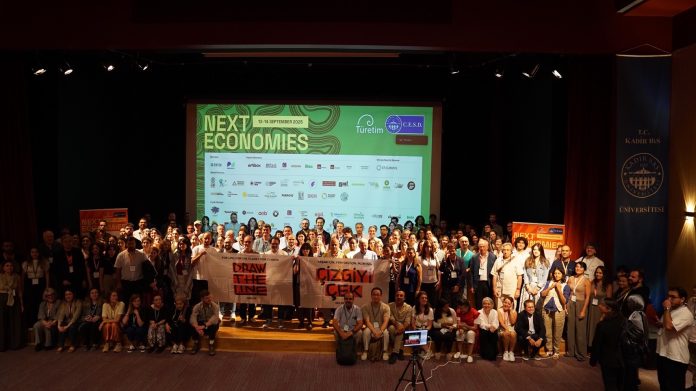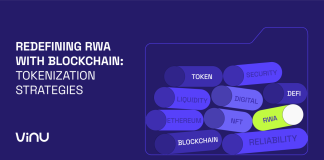Istanbul, October 2025 – Published by the Prosumer Economy Society and the Kadir Has University Center for Energy and Sustainable Development (CESD), the Next Economies Summit 2025 Report offers a comprehensive framework for the emerging movements shaping the future of economies. Bringing together influential speeches, panels, and outcomes from the United Next Economies General Assembly, the report captures the vision guiding global economic transformation. Held on September 12–14, 2025, and hosted by Kadir Has University, the summit explored the idea of next economies through social, ecological, and ethical dimensions.
A Bold Vision for the Next Economies: Hope, Equality, and Transformation
The report highlights the powerful messages of keynote speakers. Katherine Trebeck, Co-founder of the Wellbeing Economy Alliance, demonstrated—through key indicators—how today’s growth-driven model can be replaced by a Wellbeing Economy centered on people and the planet. Amitabh Behar, Executive Director of Oxfam International, described inequality as “the greatest moral challenge of our time” and called the concentration of wealth a political failure. Mads Christensen, Executive Director of Greenpeace International, emphasized that the environmental struggle cannot be won without systemic transformation and introduced Greenpeace’s new socio-economic campaign strategy. Ashish Kothari, Founder of Vikalp Sangam and the Global Tapestry of Alternatives, shared the idea of transformation “not by scaling up, but by weaving networks,” highlighting the role of local alternative movements. In the closing keynote, Rowan Conway of University College London described system change as “a transition from a dying economic model to a wellbeing-centered order,” offering a roadmap for how such a transformation can unfold across psychological, political, and financial levels.
A Global Message from the General Assembly: “Being Together Matters More Than Being Right”
The report also synthesizes insights from the summit’s key panels, including Prefigurative Economies, New Finance Models for New Economies, Degrowth and Women-Led Economies, and Young Changemakers in the Next Economies. Across these discussions, participants collectively built a new language of transformation.
At the closing session, the United Next Economies General Assembly identified six guiding themes for the future of the movement: hope and struggle, power and inequality, plural learning, care and cooperation, connection and movement building, and strategic participation. These themes converged into evocative metaphors—“power is a circulating life force” and “care is the connective tissue of society”—framing systemic change as a living and evolving process.
Organized as a climate-neutral event, the summit calculated its 240 tCO₂e carbon footprint in collaboration with ST Climate and offset it through Gold Standard–certified projects.
The Next Economies Summit 2025 Report stands as both an inspiring collection of ideas and a practical guide for systemic transformation—an open global invitation to co-create the economies of the future.
The next Next Economies Summit will be organized by the Prosumer Economy Society, in collaboration with Heliopolis University, in March 2027 in Egypt.
Contact: nexteconomies.net
What Is the Prosumer Economy?
The Prosumer Economy is a regenerative and circular economic model that aims to minimize harm and maximize positive impact on both nature and society. It envisions an economy where production and consumption are united in a way that restores ecosystems and strengthens communities.
About the Prosumer Economy Society
Founded in December 2015, the Prosumer Economy Society raises awareness about ecologically and socially just business models through research, projects, and advocacy. By connecting producers and prosumers within communities, the association contributes to building a sustainable, fair, and regenerative economic system in harmony with nature.




